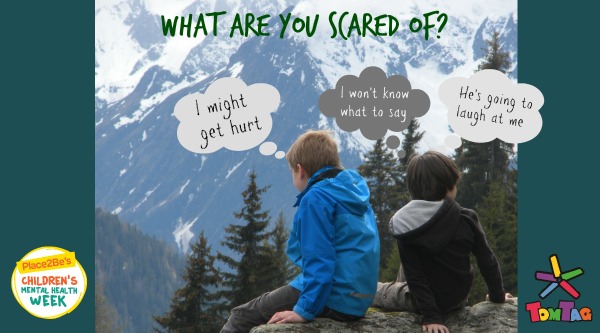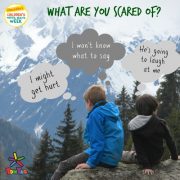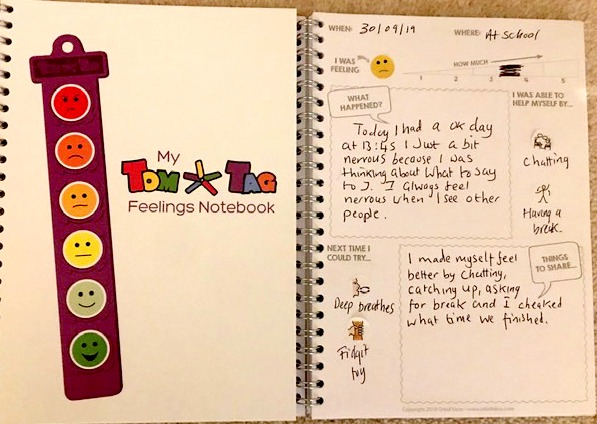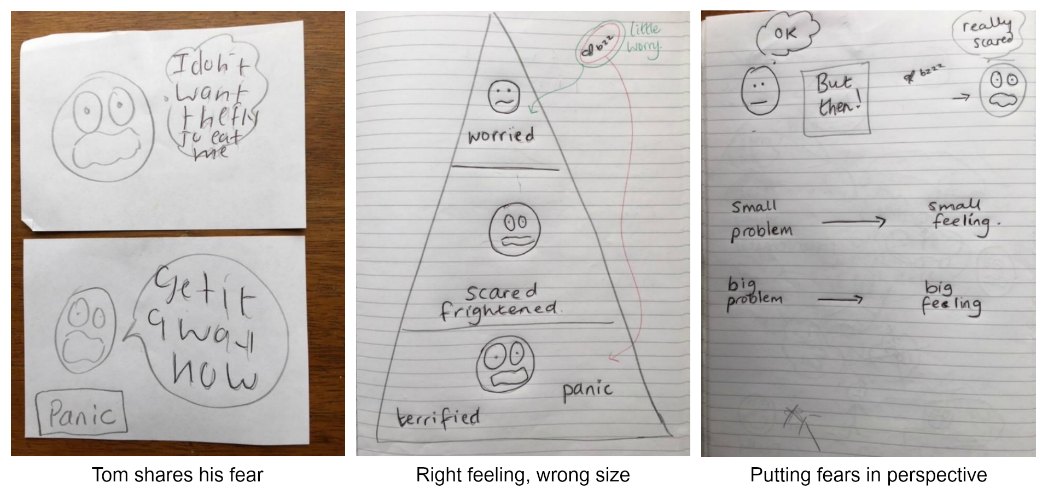
Finding your brave – Children’s Mental Health Week
Day 2: What does ‘finding your brave’ mean for a child with autism?
Now that you’ve introduced the idea of what bravery means and why being brave can make us feel good (follow the link if you missed it), we look at helping your child understand what can hold us back and the feelings that can stop us being brave.
What are you scared of?
 What stops us being brave and why can being brave be so difficult?
What stops us being brave and why can being brave be so difficult?
Being brave generally means facing something difficult or a situation we’re unsure, worried or scared about and going ahead anyway.
To help your child with autism ‘find their brave’, you need to understand what those fears, worries or anxieties are that are their barriers to being brave. It’s the thoughts and feelings we create ourselves that are most often what get in the way of doing something or trying something new. These unhelpful thoughts might include worries about getting something wrong, being embarrassed or people laughing at you.
Firstly, let your child know that it’s normal to have these emotions but that there things we can do to help ourselves to stop these thoughts and feelings getting in the way of what we want or need to do and affecting our mental health. To find out what their barriers are you may just be able to ask them. If your child is non-verbal or finds it tricky to talk about their feelings – perhaps because they have limited language skills – you will need to try some other tactics.
 For Tom, who has autism, just talking about his fears can be a cause of stress too. We’ve used the TomTag Feelings Notebook to help him communicate with us and share his concerns in a less direct or confrontational way.
For Tom, who has autism, just talking about his fears can be a cause of stress too. We’ve used the TomTag Feelings Notebook to help him communicate with us and share his concerns in a less direct or confrontational way.
In this example, he describes feeling nervous about meeting his teacher as he was unsure about what to say to her. He goes on to share that he always feels nervous when he sees other people. An example of how unhelpful thoughts – like saying something wrong or that people might laugh at him – are the barriers to bravery here.
You can use also use a diary format like this to help you and your child keep a record of feelings, anxieties, worries or behaviour which will help you to track any patterns and identify underlying triggers. Turn detective, be curious and think about what might be beneath their behaviour to see what the real issues are.
Right feeling, wrong size?
Sometimes, your child won’t even be sure what they’re afraid of, which can in itself make them feel more anxious and afraid. It’s also possible that they may have difficulty understanding the size or intensity of their feelings, something Tomas finds quite difficult.
When he was younger, Tom was terrified of flies. This was particularly difficult in the summer months as he would scream and become extremely anxious about going to sleep. Every evening we would have to make sure that his bedroom was free of the unwelcome guests before he would even go into his room.
With support, Tom was able to use drawings as a visual tool to help him share what it was about flies that frightened him and how they made him feel. He thought that the fly would eat him and he felt panic! Once we knew what the fears were, we could reassure him that it was normal to have feelings about flies. We were able to show him that his feeling of panic was unhelpful as it made things feel more scary than they really were. A case of the right feeling but the wrong size.
Doing the detective work was crucial. Had we not known about the fear then Tom’s reluctance to go to bed might have been misinterpreted as challenging behaviour around bedtime routines. By understanding his fears, providing him with reassurance and making him feel safe, we could encourage him to be brave with the help of positive thinking and a bright new fly swatter which we showed him how to use!
Next: Overcoming fears – getting closer to brave
Looking at some ways you can support your child to help them overcome some of their fears and get closer to finding their brave.


[…] Next: What are you scared of? […]
[…] We’ve introduced the idea of what bravery means and why being brave can make us feel good and looked at ways to help your child identify and understand their barriers to being brave (what are you scared of?). […]
[…] Turn detective and get a deeper understanding of your child’s fears, worries and anxieties and the thoughts that are holding them back – What are you scared of? […]